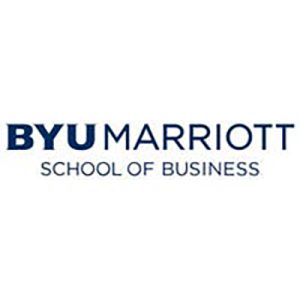As you know, leading a bank today has never been more challenging; to borrow a phrase from an old General Motors advertisement, “It’s not your father’s bank.” You and your team work harder than ever to generate income through
traditional lending activities and a growing portfolio of services. If that isn’t difficult enough in a post-pandemic,
politically-charged, inflationary environment, you find yourself swimming in change, from climate investing and disclosures to cryptocurrencies to ever-evolving ransomware risks.
Bank leaders need to sharpen a different set of skills to master today’s challenging environment, and successful leaders understand the critical role a vibrant peer network plays in providing perspective, identifying solutions, and
accelerating learning.
We’ve engineered the Society of Bank Executives around the connection between meeting today’s challenges and
creating a vibrant peer network that leads to solutions and success.
The Art of Running a Bank
The training bank executives receive on the way up the organizational ladder typically focuses on “blocking and
tackling” – the hard skills that constitute the “science” of running a bank. But the challenges that keep you up at night require knowledge and skill in the “art” of leading a bank – things like building teams, trust and culture, motivating, mentoring and coaching, and creating and deploying strategy.
The Society of Bank Executives helps you develop and expand these critical skills, not just amass information. This development happens the same way we truly learn any skill – through an intentional, peer-supported process that engages us “many times in many ways.” We host premier content experts virtually to expand your knowledge of the art of leadership. Then we hold a two-day in-person event, where you’ll apply the skill in simulated and real situations. We’ll put you in a group setting where you’ll work with other bank executives on a skill-based case study, and you’ll create an action plan for your bank to focus on over the next month. You can leverage your peer group for advice and feedback, and you’ll return the favor by helping them formulate realistic and robust plans. You’ll complete the process by reflecting
on your experience with that same peer group. This simple, iterative process of Learn-Apply-Reflect forms the
foundation of the Society’s development program. The Society spreads this process over a six-month period, covering two skills per calendar year.
The Power of an Intentional Network
We all have a loose network of people to whom we turn for advice. Fewer of us have a vibrant professional network with executives who understand and have experienced the challenges we face in banking, and who we can be open with and turn to because they are noncompeting peers. A vibrant network doesn’t grow out of random or one-off connections; it comes about as we intentionally develop meaningful relationships with others, grounded in solving real problems and challenges. In today’s hyper-busy world, you don’t build a vibrant network by attending cocktail parties or networking events, but rather through sustained interactions where you work on creating change, both in yourself and in your bank. The aforementioned in-person event – held twice annually in conjunction with our skill development program – will help you expand this vital network. In small group settings, you’ll work with other bank executives on applying the skill and creating a plan to continue to develop it in the future. In your peer group, you’ll seek and provide advice and feedback, as well as strengthen your own network. Peer groups will rotate on a regular basis to further strengthen your opportunity to network with other executives in meaningful ways. You’ll also have the opportunity to deepen those relationships through participation in joint activities, meals, and informal discussions over the two days.
If you are not managing “your father’s bank,” then your father’s approach to developing peer networks and executive skills probably won’t lead to success in today’s banking environment. The goal of the Society is to help you, your executive team, and your bank to learn, grow, and thrive in an ever-changing and complex marketplace.
Dr. Paul Godfrey is the Development Advisor to the Society of Bank Executives. Learn more and apply now at executives.bank.







